
Comprehensive analysis of nutritional composition, mineral content, antimicrobial activity, and theoretical evaluation of phytochemicals in henna (lawsonia inermis) from the Fujairah, United Arab Emirates
Author: Dr. Fouad Lamghari
09-04-2024February 2024International Journal of Biological and Chemical Sciences 17(7):2614-2630 DOI: 10.4314/ijbcs.v17i7.2 Amal Salem Khamis Hamad AlsamahiHajer Ali Abdulla AlhmoudiShaher Bano MirzaShaher Bano Mirza Henna (Lawsonia inermis) is a versatile that has been highly regarded for centuries due to its cultural and medicinal significance. Henna boasts a rich array of phytochemicals, each contri...

Fujairah Research Centre: Explore Innovations in Artificial Reef Deployment and Marine Ecosystem Restoration
Author: Dr. Fouad Lamghari
09-04-2024Welcome to the Fujairah Research Centre, where we invite you to delve into our pioneering efforts in artificial reef deployment and restoration of marine ecosystems. Nestled along the picturesque coast of Fujairah, our Centre stands as a beacon of innovation, dedicated to safeguarding and enhancing the delicate balance of marine life. Embark on a journey with us as we unveil our groundbreaking...
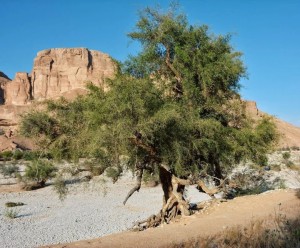
Joint Research Project by Fujairah Research Centre and ICARDA Presented at EGU General Assembly 2024! 🌳🍯🌱
Author: Dr. Fouad Lamghari
06-04-2024🌱🍯🌳 Exciting Announcement: Joint Research Project by Fujairah Research Centre and ICARDA Presented at EGU General Assembly 2024! 🌳🍯🌱 We are thrilled to announce that our joint research project between Fujairah Research Centre and ICARDA has been accepted and scheduled for presentation at the EGU General Assembly 2024. Our abstract, EGU24-20020 titled "Enhancing Vegetation Cover in Fujairah thro...

University of Sharjah, Fujairah Research Centre sign research partnership
Author: Dr. Fouad Lamghari from Author Israa Ismail Emirates News Agency
05-04-2024FUJAIRAH, 3rd January, 2024 (WAM) -- University of Sharjah and Fujairah Research Centre have announced a new research partnership to establish the ‘Fujairah Chair in Applied Science and Technology’ in the University of Sharjah. The partnership was signed by Dr. Hamid Al-Nuaimi, Chancellor of the University of Sharjah, and Dr. Fouad Lamghari Ridouane, Director of Fujairah Research Centre. On...
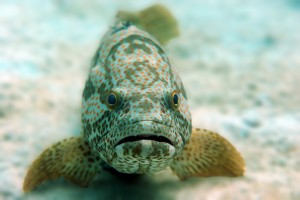
Everyone likes the hamour, but does the hamour like everyone?
Author: Dr. Fouad Lamghari Ridouane
05-04-2024This exemplifies why native species are crucial for aquaculture in the Emirate. These species are finely tuned to local conditions, thus mitigating environmental impact and safeguarding biodiversity. Cultivating them not only upholds local culture and traditions but also generates economic opportunities for communities. By prioritizing native species, we ensure sustainable aquaculture practices, n...
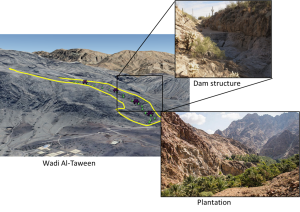
Discovering Soil Insights for Sustainable Vegetation Development in the Fujairah, UAE
Author: Dr. Shaher Bano Mirza
25-03-2024Soil is the bedrock of life, the foundation upon which ecosystems flourish, and the cornerstone of agricultural productivity. Yet, despite its critical importance, soil data coverage remains inadequate across large swathes of the globe, posing significant challenges for sustainable land management and food security. This glaring data gap is particularly pronounced in arid regions like the United A...
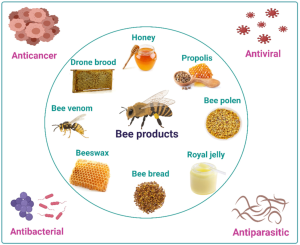
Unlocking the Power of Honey By-Products: Exploring Nature's Hidden Treasures
Author: Khawla Alyammahi
25-03-2024Honey, often hailed as nature's sweet elixir, is not only prized for its delicious taste but also for its numerous health benefits. However, beyond the honeycomb lies a wealth of hidden treasures – honey by-products that are rich in medicinal value and nutritional content. In this comprehensive guide, we will delve into the world of honey by-products, including royal jelly, beeswax, pollen, and pr...
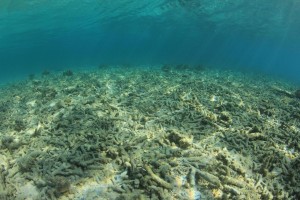
A Silent Threat: Ocean Acidification in the UAE and other GCC countries
Author: Dr. Juan Pablo Torres-Florez
21-03-2024The Arabian and Oman Gulf, a vibrant marine ecosystem teeming with life, faces a silent threat – ocean acidification. Our oceans play a vital role in regulating the Earth's climate. They act as a giant "carbon sink," absorbing roughly a quarter of the carbon dioxide (CO2) released from human activities. However, this CO2 reacts with seawater, forming carbonic acid, which alters the ocean's natural...
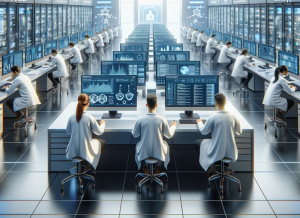
Essential Data Handling Procedures in Modern Laboratories
Author: Simon Zerisenay
20-03-2024In the rapidly evolving landscape of scientific research, the precision and reliability of data handling procedures in laboratories have become more critical than ever. Modern laboratories, whether engaged in pharmaceutical development, clinical trials, environmental testing, or academic research, face the challenge of managing an ever-increasing volume of data. This data, which forms the backbone...
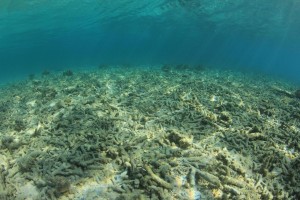
A Silent Threat: Ocean Acidification in the UAE and other GCC countries
Author: Dr. Juan Pablo Torres-Florez
20-03-2024The Arabian and Oman Gulf, a vibrant marine ecosystem teeming with life, faces a silent threat – ocean acidification. Our oceans play a vital role in regulating the Earth's climate. They act as a giant "carbon sink," absorbing roughly a quarter of the carbon dioxide (CO2) released from human activities. However, this CO2 reacts with seawater, forming carbonic acid, which alters the ocean's natural...
